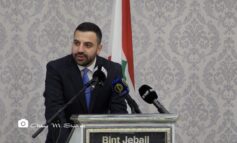Country unable to elect a president, vote delayed for another week
Beirut — Lebanese President Emile Lahoud on Friday handed over the task of securing law and order in Lebanon to the country’s army commander until a political consensus is reached and a new president is elected, after efforts to again chose his successor fell through.

In a televised speech only hours before he was to end nine years in power, Lahoud said “there are conditions and risks on the ground that could lead to a state of emergency, and the army should take over the security of the country.” The move comes after Lebanon’s parliamentary speaker Nabih Berri postponed a vote on Friday that would have been the last chance to choose a president before pro-Syrian Lahoud left office at midnight. Berri, who is also a Shi’i opposition leader, delayed the election for a fifth time due to deadlock between rival factions. He set a new session for November 30 “to allow for more consultations,” he said in a statement. The decision means Lebanon will be without a president for at least a week. Unless a consensus candidate emerges, many fear the dispute may lead violence in a country still marred by its 1975-1990 civil war.

Sources close to Premier Fouad Siniora said Lebanon’s government had rejected what they described as “an unconstitutional decision by the outgoing president.” “The statement issued by the president is not valid and is unconstitutional,” the source said, adding that “it is as if the statement was never issued and we will disregard it.” Hizbullah deputy Hussein al Haj Hassan described Lahoud’s decision as “totally constitutional and legitimate.” However some political observers believed that Lahoud’s statement caused “confusion because handing the security to the army is literally declaring a state of emergency.” According to the Constitution, the president does not have the authority to declare a state of emergency without obtaining the approval of the government, which is entitled to take over as soon as the presidential office becomes vacant. But Lahoud considers Siniora’s government illegitimate, because its pro-Syrian Shi’a ministers resigned about a year ago.

“Lahoud’s statement was not clear at all … and he managed to play on words, causing confusion among the Lebanese who are already worried about their future,” Faour said. “We consider it baseless,” the anti-Syrian official added. The Lebanese army had been on alert for several days, deploying on Friday hundreds of troops in tanks, armored carriers and jeeps along intersections leading to the Lebanese capital and around the downtown area where the parliament building is located. Both the anti-Syrian government majority and the pro-Syrian opposition quickly moved to prevent the political deadlock from spilling into the streets. Berri was quick in scheduling another parliamentary session for next Friday to give more time for consultations and defuse tensions, and leaders from both sides pledged to continue to work toward reaching agreement on a consensus candidate. “We have no choice but to have a consensus,” said Saad Hariri, leader of the parliamentary majority that backs Siniora. Political analyst Ahmed Mossali said what happens next in Lebanon will be a battleground between the West and the Syria-Iran axis. “It all now depends in part on Tuesday’s U.S.-sponsored Mideast peace conference,” he said. Syria has not formally decided whether to attend the conference in Annapolis, Maryland, but it likely will. Hizbullah has warned against any Lebanese participation in the peace conference, which it dubbed “another conspiracy” against the Arabs.”





Leave a Reply